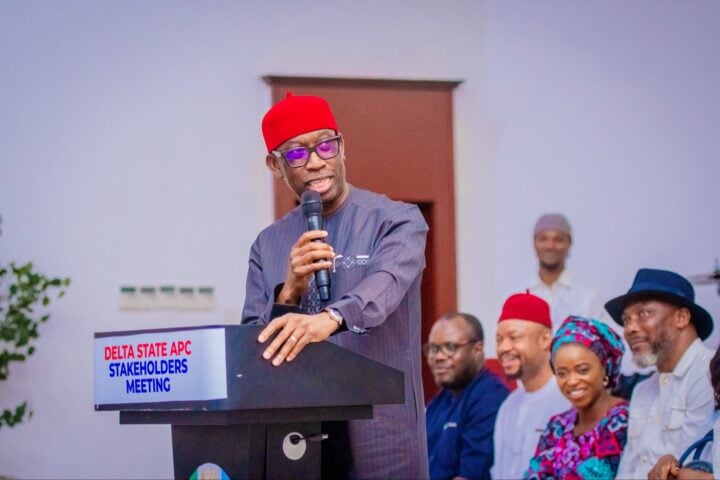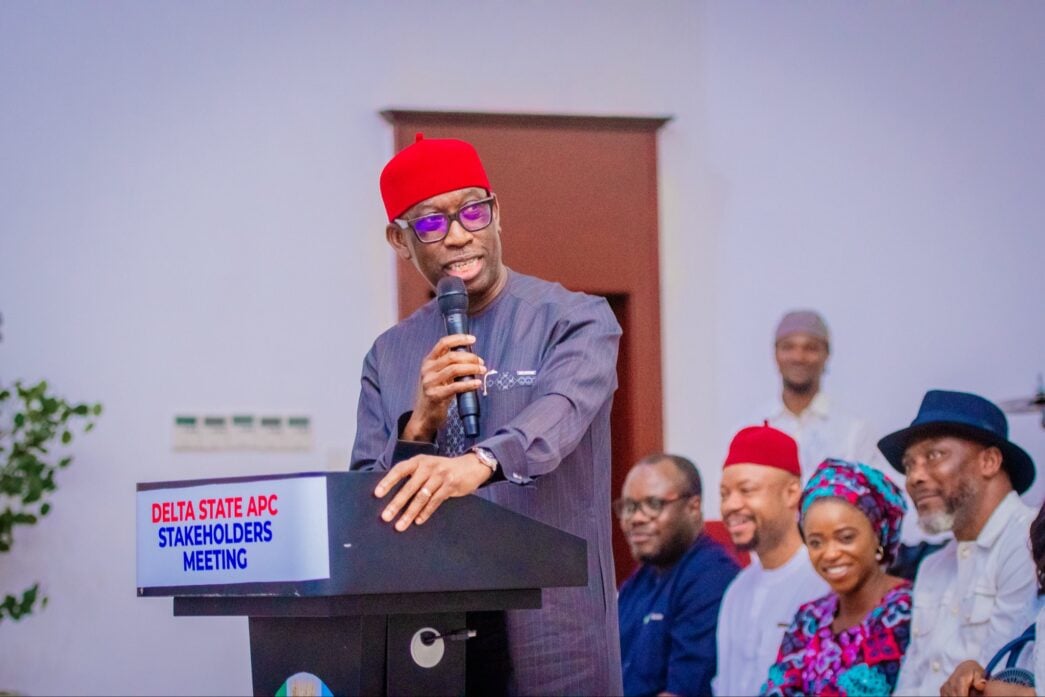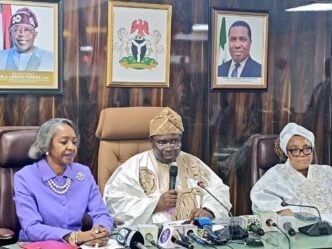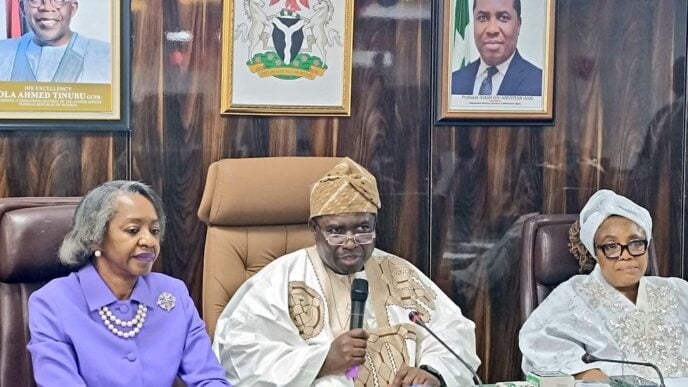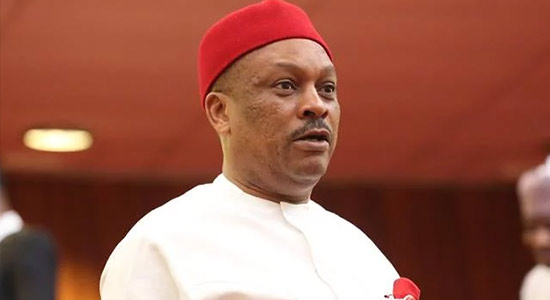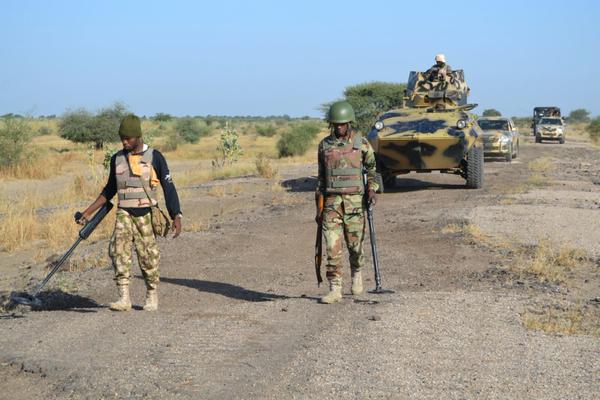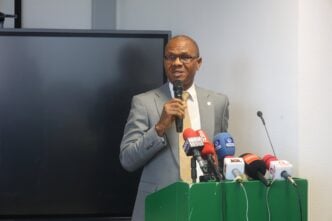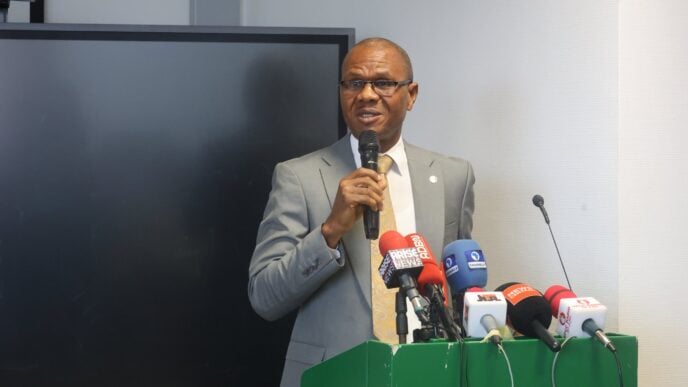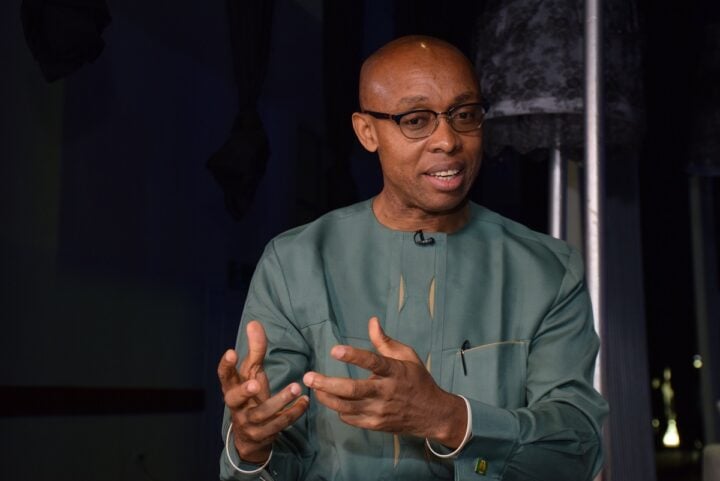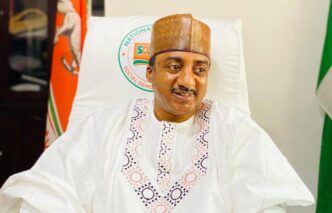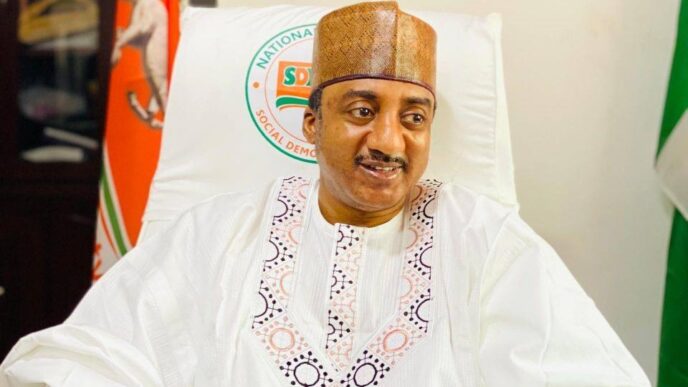Okowa at Delta APC stakeholders meeting | File photo
The Economic and Financial Crimes Commission (EFCC) says it is still investigating corruption allegations against Ifeanyi Okowa, former governor of Delta state, despite his recent defection to the ruling All Progressives Congress (APC).
In November 2024, the anti-graft agency arrested Okowa over an alleged diversion of N1.3 trillion during his eight-year tenure as governor of the state.
He was also accused of using public funds to acquire properties in Asaba, the state capital, and Abuja.
In April 2025, Okowa, who was the vice-presidential candidate of the Peoples Democratic Party (PDP) in the 2023 general election, defected to the APC alongside his successor, Sheriff Oborevwori, and several political officeholders in the state.
Advertisement
Speaking during a press briefing to mark the second anniversary of EFCC chairman Ola Olukoyede in office, Sylvanus Tahir, the commission’s director of legal and prosecution, refuted claims that Okowa was being shielded following his defection.
Tahir noted that no suspect is immune from investigation or prosecution because of political alignment.
“Someone asked the question that it is alleged that politicians who jump ship to the ruling party are shielded. The simple answer is that it’s not true,” he said.
Advertisement
“I think the reference was made to the case of a former governor of Delta state. To the best of my knowledge, that case is still undergoing investigation. And in due course, justice will be served.”
The EFCC legal director noted that the agency prefers to conclude comprehensive investigations before filing charges, especially in high-profile or politically sensitive cases.
“We have had situations where cases were rushed to court, and the outcomes were not always good. So we would like to do a thorough job. When we go to court, Nigerians will see what the case is all about,” he said.
“There’s no attempt or intention anywhere to shield anybody on account of switching parties — certainly not under this chairman.”
Advertisement
Responding to criticisms that the EFCC has not secured enough convictions of prominent figures, Tahir noted that all cases receive equal attention, regardless of the profile of those involved.
“It’s been claimed that there are no high-profile convictions. Well, the simple answer is that for us here, crime is crime,” he said.
“Of course, when you are up against politically exposed persons, it is not a tea party. It takes time. For instance, a governor who spent eight years controlling a state and its resources — whatever allegations arise from his stewardship — it’s not something you rush to investigate within months or a year.”EFCC
Advertisement
